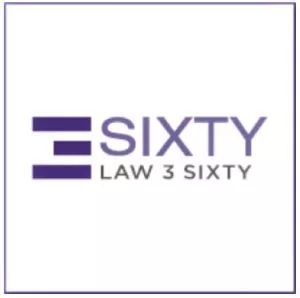Background
The Central Bank of Kenya (Amendment) Act, 2021 "The CBK Amendment Act" was assented by President Kenyatta on December 7th 2021 and became effective on December 23rd, 2021.1 It gives the CBK power to regulate digital credit providers (DCPs) who are defined as persons licensed by the CBK to carry on digital credit business.2 Digital credit means a credit facility or arrangement where money is lent or borrowed through a digital channel including the internet, mobile devices, computer devices, applications or any other digital system as may be prescribed by the CBK.3
Kenya is rapidly making tremendous milestones in the advancement of technology. Lending through digital channels, especially through mobile phones, has had a notable impact to the economy. However, great concern has been raised by the public as to how these DCPs conduct their business and particularly their high interest rates, debt collection methods and their use of personal customer information.4
The CBK (Amendment) Act 2021, gives power to CBK to come up with regulations to give effect to the new provisions of the CBK Amendment Act that provide for the regulation of digital lenders. In addition, the CBK also has powers to;
- approve digital channels through which digital credit business may be conducted;
- determine parameters for pricing of digital credit;
- supervise digital lenders;
- suspend or revoke licences; and
- direct any other changes it considers necessary.5
In this alert, we review the provisions of the draft Central Bank of Kenya (Digital Credit Providers) Regulations, 2021 (Draft Regulations).
Provisions of the Draft Regulations
The Draft Regulations are made pursuant to Sections 57(1), 57(3) and 57(4) of the CBK Amendment Act.
Proposals
a) Authorized activities for DCPs
The Draft Regulations provide that DCPs are only authorized to provide credit, or any other activity as may be authorized by the Bank from time to time.
DCPs are also prohibited from collecting deposits in any form in the course of carrying out their digital credit business. Contravention of this provision warrants a fine of Kshs. 500,000 or an imprisonment of 2 years or both.
b) Licensing of DCPs
DCPs will be required to obtain a license from the CBK within six months of the publication of the Draft Regulations.6
Any person who operates any digital credit business without a license be liable to a fine of Kshs. 500,000 or imprisonment for a term of 5 years or both.7
DCPs will be required to lodge an application using a prescribed form. In addition, applicants will be required to provide documents such as a certified copy of the certificate of incorporation of the digital credit provider, a certified copy of the Memorandum and Articles of Association of the proposed digital credit provider and a notification of the proposed digital credit provider's registered address.8
The CBK has power to issue the license to the applicants based on the following criteria;
- the history of the applicant;
- the professional and moral suitability of the persons proposed to manage or control the proposed digital credit provider;
- sources and evidence of funds to be invested by or in the digital credit provider;
- the adequacy of the digital credit provider's systems, policies and procedures;
- the governance and risk management arrangements of the applicant;
- the public interest.
It is not clear what kind of history will be taken into account, particularly for new applicants, but it is possible that the CBK will factor in negative public perception or prior unfair practices by applicants in deciding whether to issue a license or not.
Directors and significant shareholders of DCPs will be subject to fit and proper assessment. the CBK may also assess the professional and moral suitability of the persons managing or controlling a digital credit provider. The CBK may direct a significant shareholder who does not meet the fit and proper criteria to dispose their shares within a period to be advised. Similarly, the CBK may disqualify any director or chief executive officer from holding any office in a digital credit provider if they do not meet the fit and proper criteria. The fit and proper requirements have been set out in a schedule to the Draft Regulations.
In line with the Anti- Money Laundering Act, DCPs will be required to provide evidence and sources of funds invested or proposed to be invested in the digital credit provider. DCPs should commence preparing their documentation for these processes as fit and proper and source of funding information so as to avoid delay in submitting the same once the Draft Regulations come into force. The Draft Regulations propose to give CBK the power to revoke a license if the licensee;
- is found to have given false information during the licence application;
- ceases to carry on the business of a digital credit provider;
- goes into liquidation or an order is issued for winding up;
- has contravened any of the provisions of the CBK Amendment Act or any regulations made thereunder relating to digital lending;
- is in breach of the conditions of the Data Protection Act or the Consumer Protection Act9
c) Amalgamations and transfer of assets ad liabilities
Such transactions will require the prior written approval of the CBK.
d) Exchange of Credit information
DCPs will be prohibited from sharing any negative credit information of a customer where the credit information does not exceed Kshs. 1000. Credit information obtained from a credit reference bureau (CRB) should not be used for any reason other than for reaching decisions on transactions concerning a customer. Such information is not to be released to third parties and appropriate safeguards are to be made to secure information shared with CRBs.
e) Customer's consent
A digital credit provider will be obligated to obtain their customer's consent before the submission or sharing of credit information with a CRB.10 Such consent can be given orally, in print or electronically. It is proposed that DCPs notify customers 30 days or a contractually agreed shorter period prior to giving negative credit information to a CRB. The customer must also be informed once their information has been shared.
f) Limit on interest recoverable from non-performing loans
The Draft Regulations provide that the maximum amount recoverable for a non-performing loan is the sum of the following11;
- the principal owing when the loan becomes non-performing;
- interest, in accordance with the contract between the customer and the digital credit provider, not exceeding the principal owing when the loan becomes non-performing; and
- expenses incurred in the recovery of any amounts owed by the customer.
We note that the Draft Regulations do not propose a maximum interest rate chargeable by the DCPs. They only require that, the DCPs provide clear disclosures of the interest rates to be charged and whether on a reducing balance or not to their customers.12
The Draft Regulations give the CBK power to issue directions to DCPs generally for the better carrying out of its functions and in particular, with respect to;
- the standards to be adhered to by a digital credit provider in the conduct of its business; and
- guidelines to be adhered to by digital credit provider in order to maintain a stable and efficient financial system.13
g) Credit Policy and Appraisal
DCPs will be required to establish credit policies which contain borrower limits as prescribed by the CBK, charges and fees, interest rates, customer complaint handling process and other matters. DCPs will be required to take steps to ensure a customer can repay a credit facility before advancing credit to them.
h) Credit Collection
Another significant aspect to note about the Draft Regulations is the provision on credit collection. DCPs shall be prohibited from engaging in the following conduct towards their customers during debt collection;
- use of threats, or violence or other criminal means to physically harm the person, or his reputation or property;
- use of obscene or profane language;
- making unauthorized or unsolicited calls or messages to a customer's contacts;
- improper or unconscionable debt collection tactics, methods or conduct;
- any other conduct whose consequence is to harass, oppress, or abuse any person in connection with the collection of a debt.
i) Other Proposals
The Draft Regulations contain other important provisions on timelines for customer complaints resolution, system integrity and security, prohibitions on false advertising, prohibition on variation of credit terms without customer consent, prohibition on change of pricing model or parameters without CBK written consent and identification of customers.
DCPs will be subject to on-site and off-site monitoring and shall make periodic returns to CBK. Their books and records must be made available for inspection by the CBK. CBK is empowered to share information from DCPs with any financial regulatory authority, fiscal or tax agency or fraud investigations agency within or outside Kenya.
The CBK has the power to advise and make recommendations, issue directions for improvement or order a DCP to cease carry on business if it has reason to believe that the business of a DCP is being conducted contrary to the CBK Act or the regulations or in a manner detrimental to the interests of customers or members of the public.
In addition to the penalties mentioned earlier, other sanctions the CBK can impose include suspension of a defaulting director, officer or employee, disqualification of such person from holding any position or office in any licensed or financial institution in Kenya and undertaking more frequent inspections on the DCP.
Conclusion
The Draft Regulations are a step in the right direction since the CBK will hold control over the licensing of all DCPs and continuously regulate them so as to protect the end user/consumer of these services.
Members of the public have been invited to submit any representations that they may have on the Draft Regulations. The submissions may be forwarded to the Director, Bank Supervision, P.O. Box 60000-00200, Nairobi; hand delivered to the Central Bank of Kenya Headquarters, Haile Selassie Avenue, Nairobi; or email at fin@centralbank.go.ke; not later than Friday, January 21, 2022, at 5.00 p.m.
Footnotes
1. Please click here to read our review of the CBK Amendment Act
2. Section 2 of the Draft Regulations
3. Ibid
4. Central Bank of Kenya, 'Publication Of The Credit Reference Bureau Regulation, 2020 And Additional Measures On Credit Information Sharing' (2020) (https://www.centralbank.go.ke/uploads/press_releases/850440997_Press%20Release%20-%20Credit%20Reference%20Bureau%20Regulations%20-%20April%202020.pdf)
5. Section 33R Central Bank of Kenya (Amendment) Act, 2021
6. Section 5 (1) of the Draft Regulations
7. Section 4 of the Draft Regulations
8. Section 5(6) of the Draft Regulations
9. Other provisions include;
- If the licensee does not meet or has contravened or any of the licensing conditions;
- If the licensee carries out activities outside the scope of licensed activities;
- If the licensee otherwise conducts its business in a manner detrimental to its customers or members of the public.
10. Section14 of the Draft Regulations
11. Section 19 of the Draft Regulations
12. Section 17 of the Draft Regulations
13. Section 34 (4) of the draft Regulations
The content of this article is intended to provide a general guide to the subject matter. Specialist advice should be sought about your specific circumstances.

